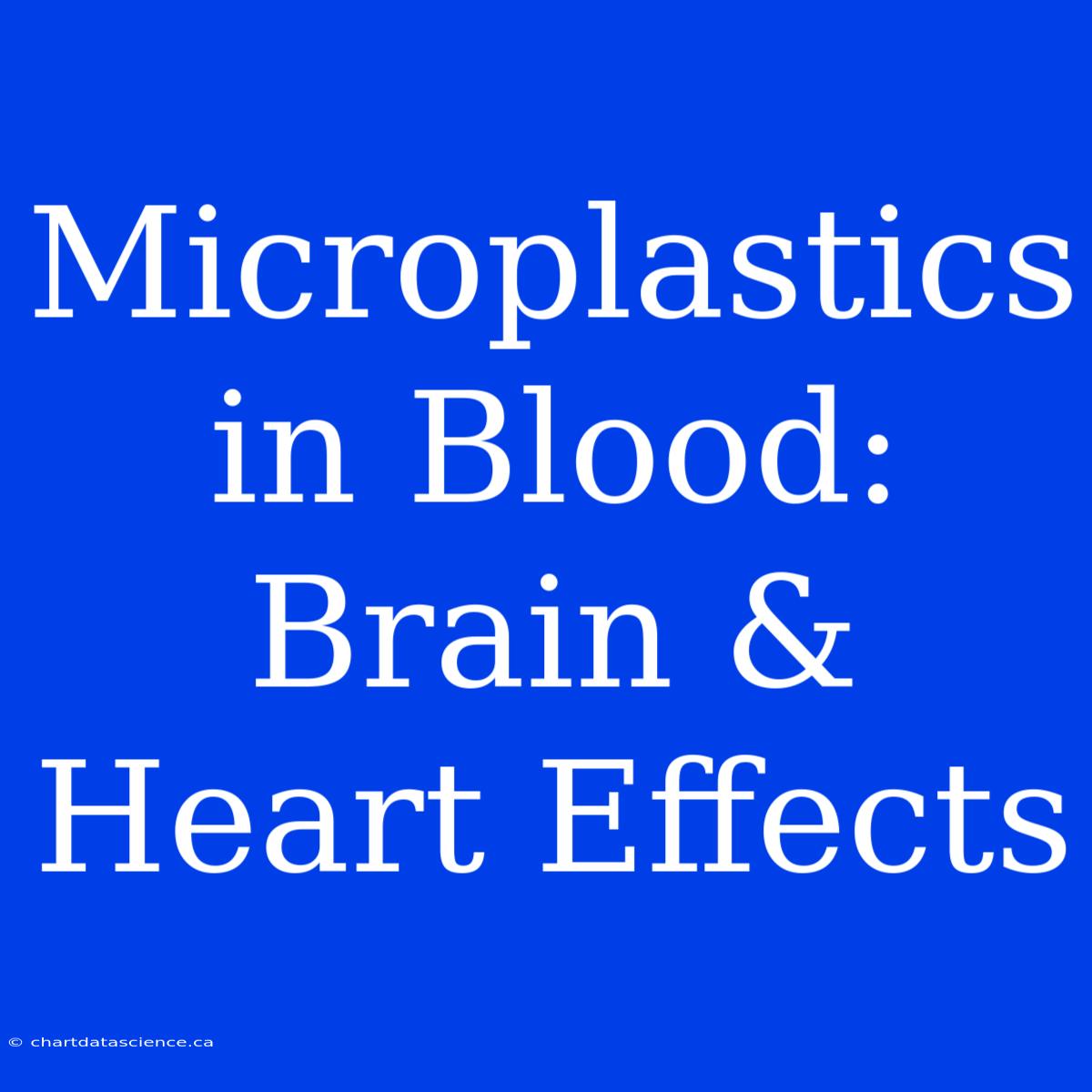Microplastics in Blood: A Growing Threat to Your Brain and Heart
You might be picturing a pristine beach, but it's hard to ignore the ever-growing problem of plastic pollution. It's everywhere, from the deepest oceans to the highest mountains. But now, scientists have discovered something truly alarming – microplastics are turning up in our blood.
What are Microplastics?
Microplastics are tiny plastic particles, less than 5 millimeters in size. They come from the breakdown of larger plastic items, like bottles and bags, or are directly manufactured as microbeads used in cosmetics and industrial processes.
The Shocking Discovery: Microplastics in Human Blood
Recent studies have shown that microplastics are present in the blood of a significant portion of the population. This means these tiny particles are circulating throughout our bodies, potentially reaching vital organs like the brain and heart.
Brain & Heart: Potential Impacts of Microplastics
While research is ongoing, there's increasing concern about the potential effects of microplastics on the brain and heart:
- Brain: Microplastics might disrupt brain development and function, potentially contributing to neurodegenerative diseases like Alzheimer's and Parkinson's.
- Heart: Microplastics could trigger inflammation and contribute to heart disease. They might also affect blood clotting and lead to cardiovascular complications.
The Bigger Picture: A Silent Threat
The long-term consequences of microplastics in our bodies are still being investigated. However, the potential implications are serious and raise concerns about the health of future generations.
What Can You Do?
It's crucial to take action to reduce our exposure to microplastics:
- Reduce single-use plastic: Swap plastic bags for reusable ones, use reusable water bottles, and choose products with less packaging.
- Support sustainable practices: Look for eco-friendly alternatives, choose products made from recycled materials, and advocate for policies that reduce plastic pollution.
- Be informed and stay informed: Learn more about the issue and share the information with others.
The road ahead is long, but we can make a difference. By taking action and raising awareness, we can help protect our health and the environment from the growing threat of microplastics.

